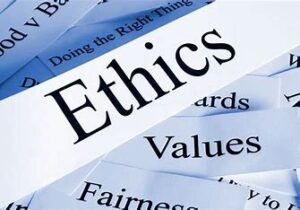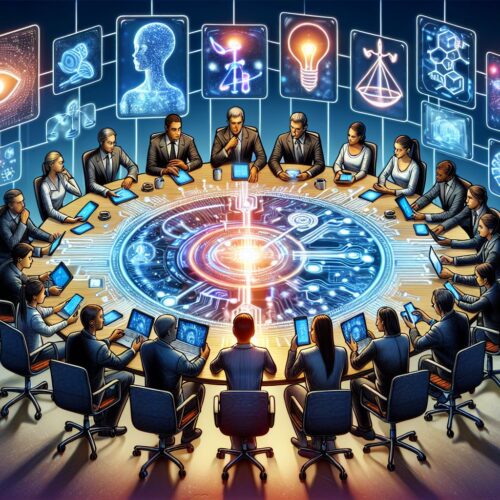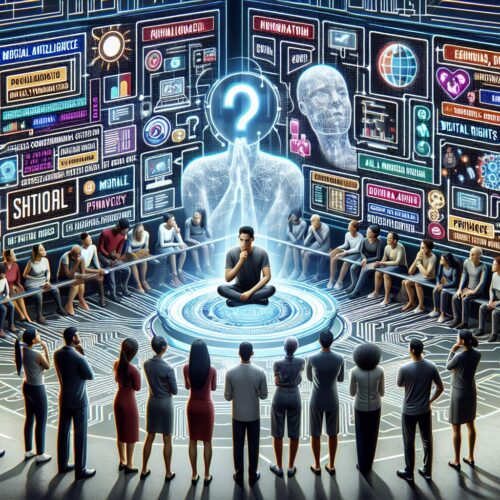From the inception of civilization, the realms of religion and politics have been deeply intertwined, serving as pillars in the formation and governance of societies. As monotheistic beliefs have shaped the moral compass of billions, the intersection of technology and ethics has become an increasingly central concern. In this blog post, we venture into uncharted waters, exploring the ethics of technology from a fresh perspective, drawing upon the unique influences of monotheism and politics.
Charting Our Course: An Introduction
As technology continues to advance at an unprecedented pace, its ethical consequences become more pronounced. The fusion of monotheistic beliefs and politics in this domain brings forth critical questions: How does technology align with religious teachings? What ethical considerations emerge when religious beliefs permeate political decisions regarding technology?
Navigating the Terrain: Unearthing Ethical Dilemmas
Within the realms of monotheism and politics, unique ethical dilemmas arise when considering technology. One such dilemma lies in the realm of genetic engineering. Monotheistic belief systems often emphasize the sanctity of life and the intrinsically divine nature of creation. As science pushes the boundaries of genetic manipulation, ethical quandaries emerge. Should humans be allowed to alter the genetic makeup of living beings? Does technology’s power to cure diseases clash with religious notions of accepting one’s fate as decreed by a higher power?
Another realm of ethical deliberation lies in surveillance technology and privacy. With technological capabilities to monitor, profile, and manipulate individuals, concerns of privacy and human dignity come to the forefront. While instating surveillance measures may be deemed necessary to ensure public safety and order by political authorities, religious teachings often emphasize notions of trust, respect, and personal autonomy. The tension between these principles raises crucial questions about the ethical use of technology in the pursuit of security.
Illuminating the Depths: Untapped Viewpoints
Exploring the interplay between monotheism, politics, and technology allows us to uncover untapped viewpoints that can reshape our understanding of these domains.
Firstly, an untapped viewpoint lies in questioning the role of religious authorities in shaping ethical frameworks for technology. While political authorities often hold the reins of regulation, religious leaders can play a pivotal role in providing moral guidance. By infusing religious teachings into discussions and policies surrounding technology, we can foster more nuanced and comprehensive ethical considerations.
Secondly, technology can serve as a powerful tool in dismantling oppressive systems. Monotheistic beliefs, rooted in principles of justice and equality, can inspire political actions utilizing technology to combat intolerance, discrimination, and injustice. The transformative potential of technology, guided by religious values, can disrupt the status quo and reshape political landscapes.
Nearing the Shore: Reflections and Further Contemplation
As we conclude our voyage through the ethics of technology, it becomes evident that the intertwining realms of monotheism and politics offer rich terrain for exploration. By delving into the ethical dilemmas that arise at their intersection, we can begin to uncover new perspectives and potential solutions.
This journey highlights the vital need for interdisciplinary dialogue, encouraging religious leaders, policymakers, and technologists to engage in thoughtful conversations. By embracing the complexities of ethical decision-making in the realm of technology, we can navigate the ever-evolving landscape with prudence, compassion, and respect for the diverse beliefs that shape our world.
Together, let us set sail towards a future where technology and ethics harmoniously navigate the seas of monotheism and politics, creating a just and enlightened world for all.


 The Influence of Monotheism in Franklin’s Political Landscape
The Influence of Monotheism in Franklin’s Political Landscape The Role of Churches and Faith-Based Organizations
The Role of Churches and Faith-Based Organizations Community Engagement: A Path Forward
Community Engagement: A Path Forward
 The Power and Boundaries of Technology
The Power and Boundaries of Technology
 Embracing Technological Advancements with Ethical Responsibility
Embracing Technological Advancements with Ethical Responsibility Political Dynamics and Policy-Making
Political Dynamics and Policy-Making
 Monotheistic beliefs, such as those found in Judaism, Christianity, and Islam, have historically played a significant role in shaping societal norms and values. These religious doctrines often provide a moral compass for their followers, outlining guidelines on what is considered right and wrong. When brought into the realm of technology, the ethical implications become even more complex.
Monotheistic beliefs, such as those found in Judaism, Christianity, and Islam, have historically played a significant role in shaping societal norms and values. These religious doctrines often provide a moral compass for their followers, outlining guidelines on what is considered right and wrong. When brought into the realm of technology, the ethical implications become even more complex.
 The Power and Reach of Technology
The Power and Reach of Technology
